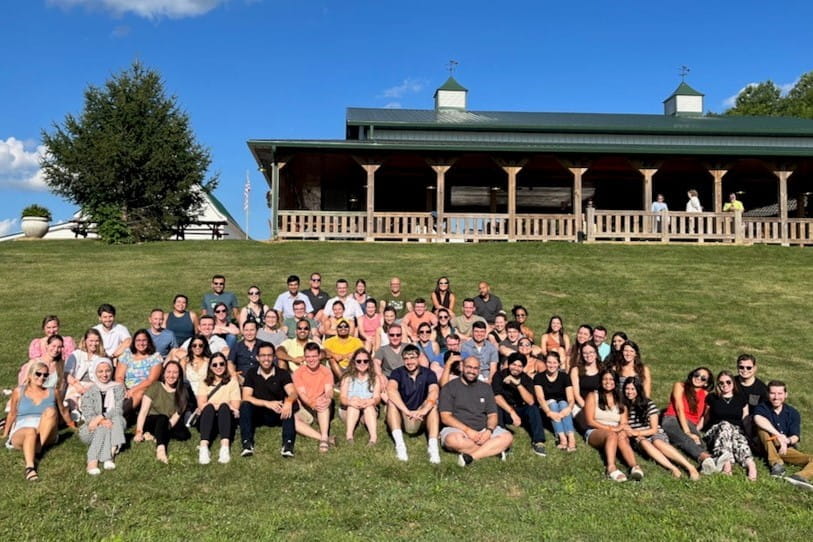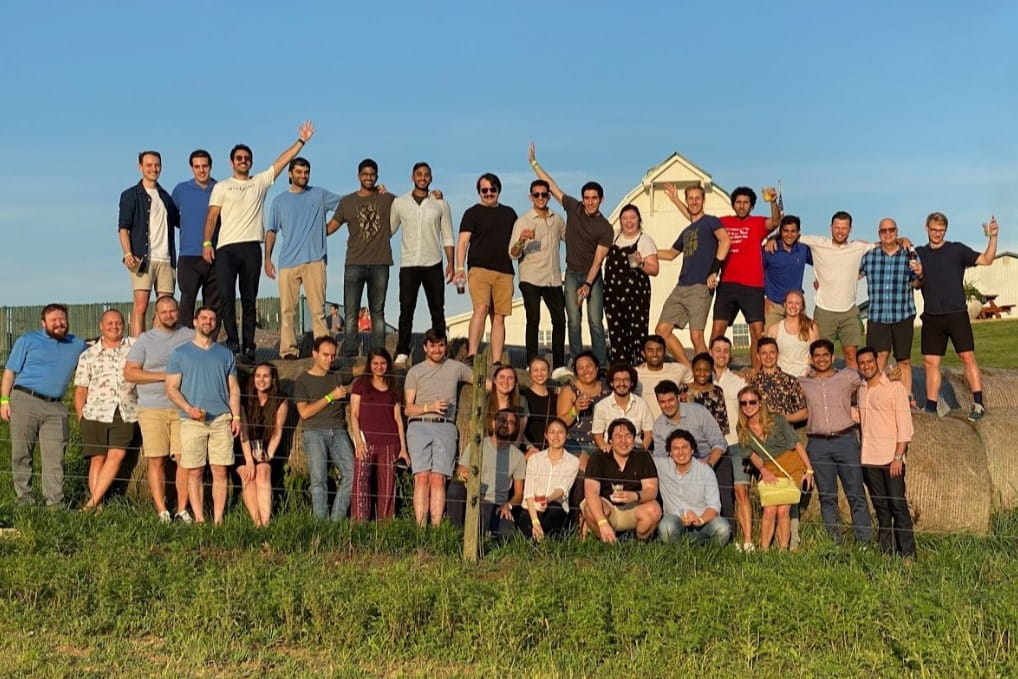Ward Rotations
This IU Health Methodist Hospital rotation offers residents two weeks on a primary cardiology team and two weeks on an advanced heart failure team. Most patients on the primary cardiology team are located in the cardiac ICU, with cases such as acute coronary syndrome, congestive heart failure, cardiogenic shock, and unstable arrhythmias. On the advanced heart failure team, residents are exposed to advanced heart failure therapies including chronic inotrope use, long-term LVAD support, ECMO, Impella, and patients with recent and remote heart transplants
Eskenazi Hospital, Roudebush VA Medical Center, and Methodist Hospital have general internal medicine ward experiences. Most teams have one resident, two interns, one fourth year medical student, and three third year medical students. Hours are 7 a.m. to 4 or 5 p.m. and teams are capped at 16 patients. The VA has call days every five days, where teams can accept up to seven new patients between 7 a.m. and 7 p.m. There are no overnight calls on general wards. At Eskenazi Hospital, we have implemented a drip system for admissions, where patients are distributed daily across all medicine teams. We aim to prevent surges in team census and enhance residents' educational experience. There are four types of days: pre-call, call, post-call, and drip days. On call days, teams may admit up to six patients. Admissions vary depending on the day, with a target census of nine to 12 patients and a maximum cap of 16 patients per team. Eskenazi and Methodist Hospitals both have options for “hospitalist” wards, a two-resident team with no interns or students. These teams allow residents to experience the day in a life of a non-teaching hospitalist service.
Residents care for patients with a variety of hematological conditions including acute leukemia, lymphoma, multiple myeloma, and complications from sickle cell disease. Within the IU Simon Comprehensive Cancer Center, residents will work within a multidisciplinary team including a hematology nurse, pharmacist, social worker, dietician and care manager. In this rotation, residents participate in a night float system for approximately two weeks and day-shift system for the remaining two weeks. Interns work exclusively during the day.
ICU rotations are available at all four hospitals, offering diverse patient populations and pathologies. Rotations at the VA have call shifts every four days; call shifts are 24 hours with an additional four hours for work associated with transfer of care. Eskenazi and University Hospitals utilize a night float system. Residents spend three weeks on days and one week on nights. Each resident does one 24 + four hour shift similar to the VA. Methodist Hospital ICU is an elective for our critical care-oriented seniors with two rotation types. They get to train alongside excellent critical care physicians one-on-one with plenty of procedures to spare. One rotation option is working days from 7 a.m.-7 p.m. with weekends off. The other option is working nights from 6 p.m.-7 a.m. working with admissions and cross covering the ICU and floor transfers.
IU School of Medicine hepatologists accept complex transfer patients from all over the Midwest. Common cases include acute and chronic hepatitis, complications of cirrhosis, end-stage liver disease, and acute liver failure. Residents have the opportunity to participate in emergent transplant work-ups and often see post-transplant patients as well. Residents work two weeks of days from 7 a.m. to 5 p.m. and two weeks of nights during which they work seven to eight shifts. Interns work days only.
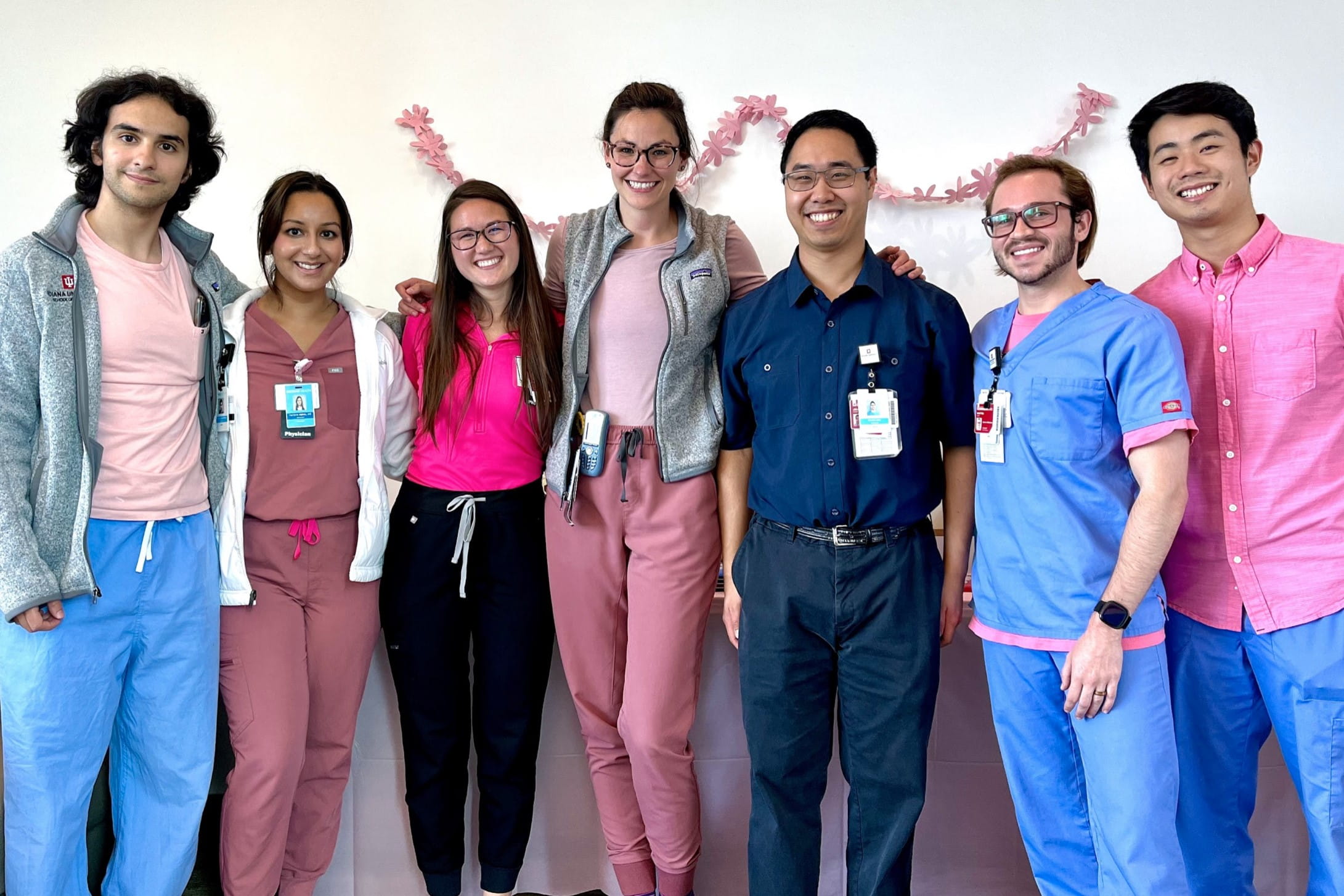
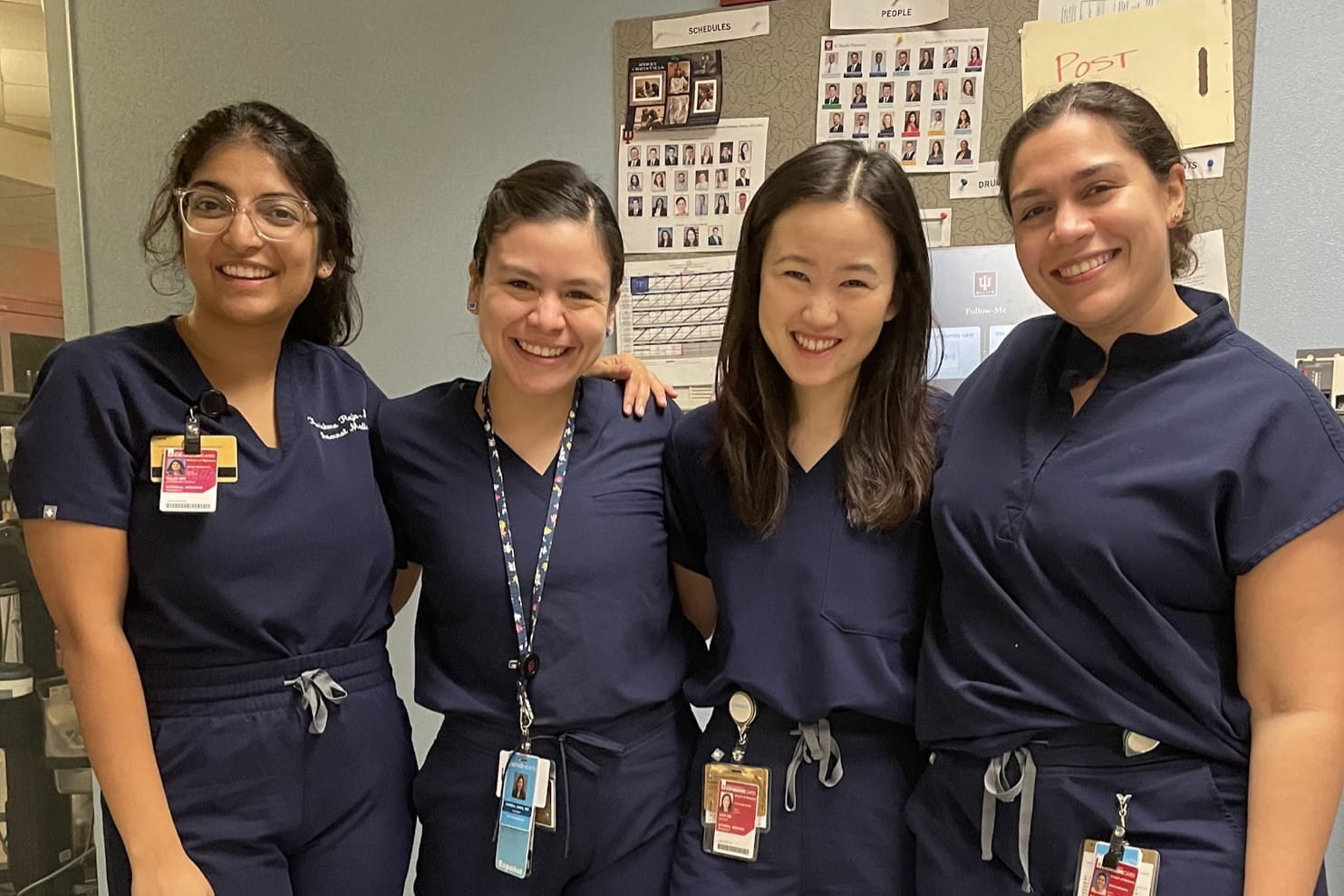
Consult Rotations
Consult rotations are offered at all four hospitals. We offer experiences in cardiology, gastroenterology, hematology, oncology, pulmonary, infectious diseases and endocrinology among others. Almost all consult rotations allow weekends off.
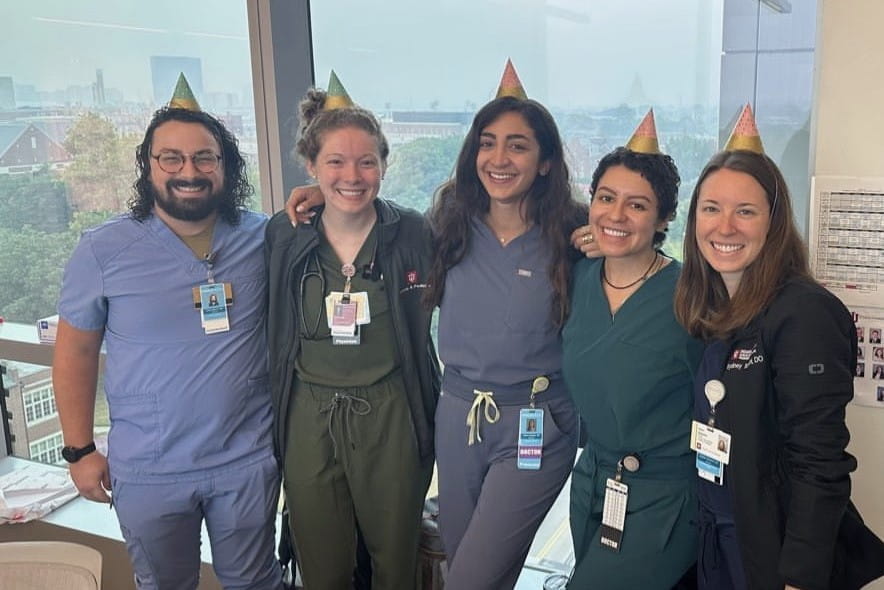
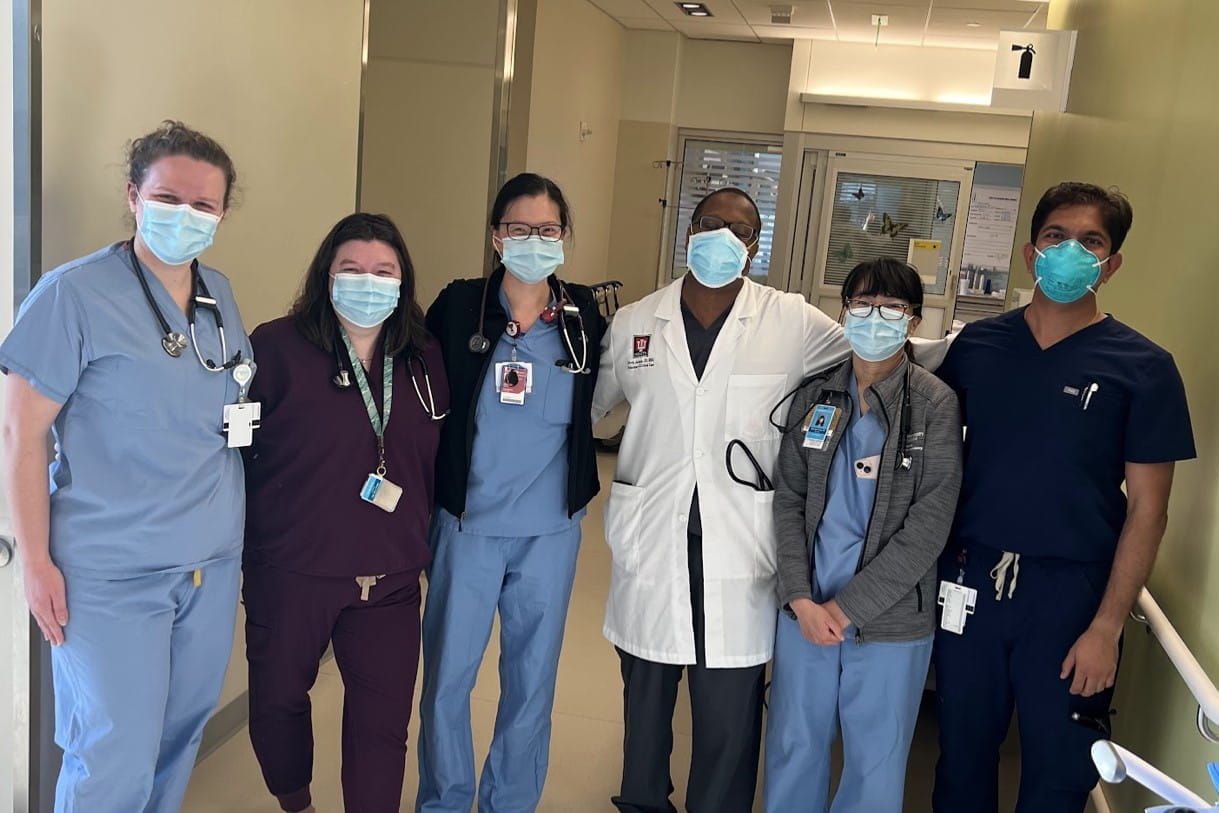
Ambulatory Rotations
Our program provides residents with outpatient clinical experience through continuity clinics, subspecialty core rotations and six dedicated ambulatory rotations. Ambulatory rotations include experiences in subspecialty clinics (cardiology, gastroenterology, palliative care, etc.), addiction medicine, women's health, pre-operative medicine and LGBTQ+ health care. Our program additionally sets aside protected time during ambulatory rotations for wellness experiences as well as a didactic curriculum taught and curated by ambulatory clinician educators across our clinical sites.
Working with a faculty mentor, the resident plans and designs a clinical elective to achieve individual goals. In the past, residents have used this opportunity to explore areas of medicine rarely encountered during typical training, including sports medicine and sleep medicine. Residents interested in primary care have also used this elective to focus on outpatient procedural skills such as placement of intrauterine devices.
Other electives
This required rotation includes opportunities to participate in a robust peer review process and root cause analysis, investigate near-miss or key incidents in patient safety, and work in conjunction with patient safety officers at the VA. Residents participate in one half-day clinic per week focusing on transitions of care, with special interest in safe hospital and extended-care facility discharges. Projects completed by residents during this rotation have stimulated hospital-wide changes to policies and practices and generated multiple research papers.
Working with a faculty mentor, residents on the special research elective plan and design research to achieve individualized goals such as exposure to different research types, initiation of a new research project or the maintenance of an ongoing project. Prior research projects have included basic science research, comprehensive case reports and reviews of clinical or research topics.
This is a two-month rotation located in Eldoret, Kenya that is designed to give residents global health experience in a low-income country. Residents join a team at Moi Teaching and Referral Hospital with Kenyan medical students, residents and other trainees. Typical cases include malaria, tuberculosis and AIDs, as well as late and uncommon presentations of common disease including Type II diabetes mellitus, hypertension and cerebrovascular disease. Outpatient clinical experiences are available at a rural clinic where IU leads collaborative efforts to treat patients with HIV. Residents receive credit for one ward month and one elective.
On our toxicology rotation, residents collaborate closely with the Poison Center, emergency medicine providers, inpatient teams and our toxicology faculty and staff to evaluate toxicology cases at five hospitals across Indianapolis. This unique experience includes daily lectures from toxicology faculty as well as the opportunity to observe calls to the Poison Center. You may even catch our residents learning about types of snake venom at the Indianapolis Zoo on this rotation. The faculty and staff round on selected inpatient cases based on acuity of presentation, complexity of ingestion and educational opportunities. Prior cases have included toxin-induced seizures and coma as well as toxic ingestions of acetaminophen and tricyclic antidepressants.
Mentorship
Program Leadership Mentor
Each resident meets with the program director or an associate program director at least twice per academic year to check in on their professional and personal development. These mentors are able to assist residents in all aspects of residency from dealing with interpersonal challenges, improving time management skills or seeking out research mentorship.
Faculty Mentorship
Upon matriculating to IU School of Medicine, each resident is asked about their professional interests and goals. Each resident is then paired with a faculty mentor in their area of interest to help facilitate professional development. Our faculty mentors are some of the top performers in their respective fields, and include prior president of the American College of Cardiology, pioneers in advanced endoscopy and hepatology, and oncologists on the forefront of cancer therapy. These mentors are highly motivated and are able to help provide guidance on career development, subspecialty training and research.
Resident “Big Sibling"
This is an optional program designed to match up incoming interns with current residents. This relationship allows for more casual mentorship about all aspects of residency such as discussing appropriate research mentors, advice about wards and electives, parenting during residency and more.
Annual Retreat
Each year, our PGY2 residents have a two-day overnight retreat at a resort near Bloomington, Indiana. Through group discussions and team building activities, residents learn communication, leadership, and management skills needed to help them succeed as they step into their new supervisory roles.
